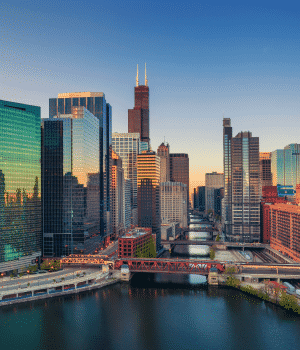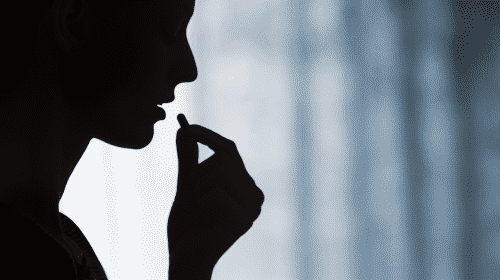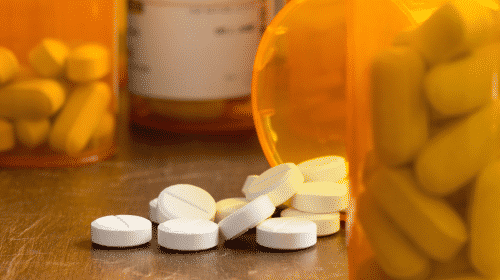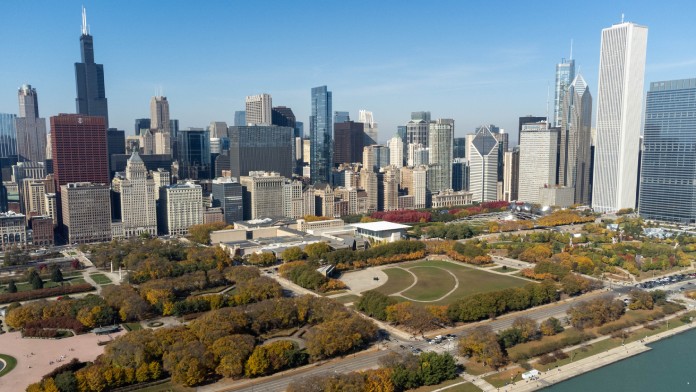Expert Insights
Pharmaceutical companies are finally paying out settlements for their role in the opioid epidemic. Chicago is slotted to receive around $78 million. With these funds, policy makers are supposed to strengthen programs that address the opioid crisis. Solutions that Chicago officials are looking at include expansion of medication assisted recovery programs and distribution of naloxone and fentanyl test strips. While there may be merit to some of these efforts, I see a red flag waving in the Windy City. These programs are giving the money right back to big pharma. Maybe we could focus more on non-drug-related solutions? Or use some of these funds to support families who have lost someone to overdose? Wouldn’t that be better than repadding the wallets of pharmaceutical execs?
~ Kerry Nenn
How Much Does Drug Rehab Cost in Chicago?
Substance abuse costs the United States approximately $600 billion annually, but treatment can help to alleviate these costs. Nationally, the average cost of a one-year methadone maintenance program is $126.00 per week or $6,552.00 per year.20
Drug and alcohol rehabs in Chicago can vary in cost depending on the type of care utilized and the length of the programs. For example:8
The cost of medical detoxification can average $12,183 per episode.
Intensive outpatient programs can average $4,939 per episode.
Typical outpatient programs can average $2,228 per episode.
Residential options are the most expensive, averaging $32,523 per episode.
Are There Free or Low-Cost Drug Rehab Centers in Chicago?
There are many low-cost and free addiction treatment centers in the Chicago area. Many clinics will even work with your insurance, whether it is private insurance or Medicaid.
To learn more about Chicago drug rehab, get help today at
800-681-1058
(Who Answers?)
.
Does Insurance Cover Rehab Center Costs?
 There is a wide range of options available to help you afford addiction services in Chicago. According to the Affordable Care Act and the Mental Health Parity and Addiction Equity Act (MHPAEA) of 2008, health insurers and group health plans must cover mental health and substance abuse program costs.
There is a wide range of options available to help you afford addiction services in Chicago. According to the Affordable Care Act and the Mental Health Parity and Addiction Equity Act (MHPAEA) of 2008, health insurers and group health plans must cover mental health and substance abuse program costs.
Private Insurance
If you have private insurance, your insurance will likely cover payment for alcohol and/or substance use treatment, though the extent of coverage may vary between providers and plans. Some insurance plans may cover the full cost of inpatient or outpatient services, while others may provide partial coverage.
Some popular insurance providers include Blue Cross and Blue Shield, which may cover part or all of the cost of an opioid, alcohol, or benzodiazepines detoxification program if deemed medically necessary.
United Healthcare offers a free hotline that is confidential and available to members and their families.
Aetna offers an alcohol and substance abuse screening program that leads to referrals to programs as needed.
Medicaid
If you don’t have private insurance through an employer or a family member, you may qualify for Medicaid. Medicaid is a state and federally-funded program that pays for medical services for eligible adults that have a low income, pregnant individuals, children, and people with disabilities. Medicaid often does cover addiction programs. Due to the Mental Health Parity and Addiction Equity Act (MHPAEA), Medicaid must allow for coverage of mental health disorders and substance use disorders.10
Medicare
Medicare is federal health insurance for people 65 years of age and older and some younger individuals who have disabilities.
Medicare will pay for your drug rehab in Chicago in both inpatient and outpatient facilities. Medicare Part A pays for inpatient services, and co-pays are the same for any other type of inpatient hospitalization. Medicare Part B will pay for outpatient services from a clinic or hospital outpatient department.10
Services that Medicare coverage includes:
- Psychotherapy
- Patient education about their substance use disorder and options
- Follow-ups after a hospitalization
- Drugs that are prescribed in an outpatient setting through Medicare Part D
- Drugs that are prescribed in an inpatient setting include methadone and more
Does Your Insurance Plan Cover Addiction Treatment?
To find out if your insurance plan covers addiction treatment, call the number on the back of your insurance card to verify your insurance coverage and receive help in finding the right program for you in Chicago.
Remember, when using your private insurance, you may have a deductible, co-insurance, and/or co-pays, so it is best to ask about all of this information when you call your provider.
You can also ask for a list of preferred or in-network providers from your insurance company to prevent higher or unexpected costs down the line.
How to Finance Addiction Treatment in Chicago
If you find that free alcohol and drug rehab centers in Chicago are full or you don’t have insurance, there are alternatives available to you.
You can always seek out faith-based organizations, non-profit, or government-funded programs.
Does Chicago Have a Drug & Alcohol Problem?
Chicago is the third-largest city in the United States, with a population of nearly three million people. From January to June 2020, there were 7,301 opioid-related EMS responses and 573 opioid-related deaths. Of those opioid-related overdose deaths, more than 80 percent of them involved fentanyl.1 To combat this problem, there are nearly 300 accredited alcohol and drug rehab centers in Chicago.2 Whether you are looking for a free, luxury, or specialized addiction treatment center, you’ll find it in the Windy City.
In 2020, approximately 15% of adults in Illinois reported excessive alcohol consumption, according to the Chicago Department of Public Health, Healthy Chicago Survey 2017.2 Among different races, approximately 15.7% of White people reported excessive drinking, 12% of Black people, 15% of Hispanic people, and 12.7% of Asian people.1
Those with a college degree were more likely to binge drink than those with only a high school diploma. Males were more likely to report excessive drinking than females at 18.1% vs. 11.8%. Excessive drinking was also reported higher among those who were 18–44 years of age.1
Over 3,000 deaths annually are attributed to excessive alcohol use in Illinois, with over 72% of those deaths occurring in males. Over half of the alcohol-related deaths in Illinois are due to long-term alcohol abuse.1
Alcohol Rehab Admissions in Chicago
In 2020, there were 36,188 admissions into treatment facilities in the state of Illinois. 5,371 of these admissions were alcohol-only admissions, while 6,236 admissions were based on alcohol as well as a secondary drug.3
Of the alcohol-only Illinois admissions, 70% were male, and 29.6% were female. 80% of alcohol-only admissions were non-Hispanic, with over 65% being White, over 20% being Black, over 18% being Hispanic, and less than 1% being Native American or Asian and Pacific Islander.6
The majority of alcohol-only admissions, about 15.6%, were among those 31–35 years of age.3
Although 6.7% of Americans who drink alcohol will develop an alcohol use disorder (AUD), research shows that Chicago alcohol admissions are increasing, which can offer you hope in reaching your goal of recovery.3
Chicago Drug Use Statistics
The most-reported drug use came from people between the ages of 18–25 who also reported abusing prescription painkillers in the past year.5 What’s more, the vast majority of heroin seized by the Chicago authorities contained the powerful and deadly opioid, fentanyl.
Data received from city, county, state, and federal resources – including the Illinois Department of Public Health – shows the following about drug use in Chicago:

In 2018, approximately 79% of all drug overdose deaths in Illinois were directly related to opioids.4

25% of all opioid-related overdose deaths were caused by fentanyl alone.5

In 2021, about 90% of Chicago’s opioid-related overdose deaths involved fentanyl.11

40% of all poly-substance overdose deaths from January–June 2021 involved cocaine and an opioid.11
Drug Rehab Admissions in Chicago
Over 33,000 people were admitted into Illinois facilities in 2020. These admissions were mainly for heroin (8,879 admissions), marijuana (4,972 admissions), amphetamines (4,213 admissions), and cocaine (2,399 admissions).5
Among Illinois drug admissions, the majority were male, ranging from over 60% to 100%, depending on the type of drug the individual admitted was using. As an exception, females were the majority with drug admission related to other (nonspecific) stimulants.5
The ages of those entering addiction treatment centers varied depending on the type of drug being used. The majority of admissions ranged from ages 12–17 for marijuana to 51–55 for smoked cocaine.5
White people were the majority in most of the drug-related admissions, with notable exceptions for admissions for smoked cocaine and PCP, which was higher in Black people. Hispanic people accounted for 6.5%–25.5%, depending on the drug, while Native American, Asian, and Pacific Islander peoples accounted for the lowest number of drug admissions.6
Alcohol and Drug Laws in Chicago
Illinois policymakers have established these laws concerning substances:
Drug Possession: In Illinois, possession of drugs (except cannabis) is a felony in all cases. Felony charges may lead to time in jail and a lifelong felony record.14
Good Samaritan Law: The Emergency Medical Services Access Law of 2012 is the Good Samaritan Law in Illinois. This law encourages people to seek emergency medical help when someone is overdosing. If an Illinois resident calls 911 or brings someone to an emergency room for an overdose, both the victim who is overdosing and the person seeking help are protected from being prosecuted for felony possession of small amounts of drugs.15
Pretrial Fairness Act: Effective Jan 1, 2023, this law gives discretion to police officers who catch people with small amounts of drugs to release them with a citation that orders them to appear in court within three weeks. This is a change from the previous law, which put that person immediately in jail for a few days until they were brought before a judge.16
DUI Laws: Drivers are considered under the influence in Illinois if they have a BAC of .08 or higher, have a THC concentration of either 5 nanograms or more per milliliter of whole blood or 10 nanograms or more per milliliter of other bodily substance, have used any other controlled substance, or are impaired by medication. A first conviction of DUI is a Class A misdemeanor with a minimum penalty of suspension of driving privileges and vehicle registration for one year.17
How to Pick the Right Level of Care
For many Chicago residents, there are many levels of addiction treatment, from most to least intensive. For others, only the least restrictive levels are required.
Medical Detox
Detox is the process of safely removing all drugs and alcohol from your system. It occurs in a controlled setting to manage withdrawal symptoms. This process is often necessary before you can enter a formal program.
Inpatient
Residential or inpatient is the most intense setting, involving 24/7 care. Medication, individual and family therapy, and recreational therapy are usual forms of care at this level.
Partial Hospitalization Programs (PHPs)
In a PHP, members receive much the same services as in an inpatient program, but they return home during non-treatment times.
Intensive Outpatient Programs (IOPs)
IOPs are a step down from PHPs. These programs offer several hours of care over multiple days per week. This usually includes individual and group therapy.
Standard Outpatient
Standard outpatient programs are the least intensive level of treatment. They require only two or three hours of care per week, normally at an outpatient clinic or therapist’s office. This option is best for those with a strong support system who are highly motivated.
Aftercare
Also called relapse prevention, aftercare is focused on providing ongoing support for continued sobriety once rehabilitation is complete. Aftercare can include 12-step meetings, transitional housing, therapy, and other supports.
If you need assistance in choosing a program, help is available. Get help today by calling
800-681-1058
(Who Answers?)
.
Should You Go to a Specialized Drug Rehab in Chicago?
Veteran
There are programs designed specifically for veterans and those who have served in the military. These focus on unique concerns that veterans may experience, such as posttraumatic stress disorder (PTSD) from combat or sexual assault.
LGBTQ+
Many accredited alcohol and drug rehab centers in Chicago offer options for individuals in the LGBTQ+ community. These clinics are experienced in addressing the unique needs of this community, such as familial rejection, internalized homophobia, discrimination, harassment, trauma, and more.
Men-Only
There are drug and alcohol rehabs in Chicago that specifically address the needs of men. These are aware of the unique challenges that many men face in our society, such as the expectation to be strong and unemotional.
Women-Only
Women-only programs specialize in treating women and provide a safe space for women to process and recover, especially for those who may have experienced sexual assault or abuse from a male partner or loved one.
Teen
Being a teenager can be a confusing and often painful experience. Teen-centered programs know this and work with you to address the unique challenges that arise from being a teenager, such as peer pressure and bullying.
Should You Travel for Drug and Alcohol Rehab in Chicago?
If you are wondering whether you should travel to Chicago for your addiction treatment, keep in mind that the city has a wide array of options available. You should take into account whether you have the financial means to travel and how leaving your current environment would impact your alcohol and/or drug use.
Resources
- CHICAGO OPIOID UPDATE: Mid Year. (n.d.). Opioid-related deaths.
- FindTreatment.gov. (n.d.). FindTreatment.gov.
- Substance Abuse and Mental Health Services Administration. (2022). Quick Statistics.
- Chicago Department of Public Health. (June 2019). Alcohol Use and Outcomes in Chicago.
- Centers for Disease Control. (2018). During binges, U.S. adults have 17 billion drinks a year.
- Illinois Department of Health. (2019). The Opioid Crisis in Illinois: Data and the State’s Response.
- Chicago Department of Public Health. (2018). Opioid Surveillance Report
- Substance Abuse and Mental Health Services Administration. (2022). Quick Statistics.
- National Institute on Drug Abuse. (2022). Is drug addiction treatment worth its cost?
- National Center for Drug Abuse Statistics. (2022). Average Cost of Drug Rehab [2022]: by Type, State & More.
- Medicaidgov. (2022). Parity.
- Center for Medicare Advocacy. (2022). Medicare Coverage of Mental Health and Substance Abuse Services
- Cook County opioid overdoses for 2021 set to surpass 2020 numbers. (2022, January 26). Cook County Government. https://www.cookcountyil.gov/news/cook-county-opioid-overdoses-2021-set-surpass-2020-numbers
- Staudt, S. (2022, June 15). Dynamics of drug possession charges in Illinois, from investigatory stops to sentences. Chicago Appleseed Center for Fair Courts. https://www.chicagoappleseed.org/2022/06/15/dynamics-of-drug-possession-charges-in-illinois/
- Opioid overdose response. (n.d.). Retrieved November 22, 2022, from https://dph.illinois.gov/topics-services/opioids/overdose.html
- Main, F. (2022, November 4). New Illinois drug reform law gives cops choice not to jail people for small amounts of drugs: https://chicago.suntimes.com/2022/11/4/23435707/safet-act-pretrial-fairness-act-illinois-reform-costly-toll-dead-end-drug-arrests-drugs-possession
- Illinois 2022 DUI Fact Book. (2021). Illinois Secretary of State. https://www.ilsos.gov/publications/pdf_publications/dsd_a118.pdf




